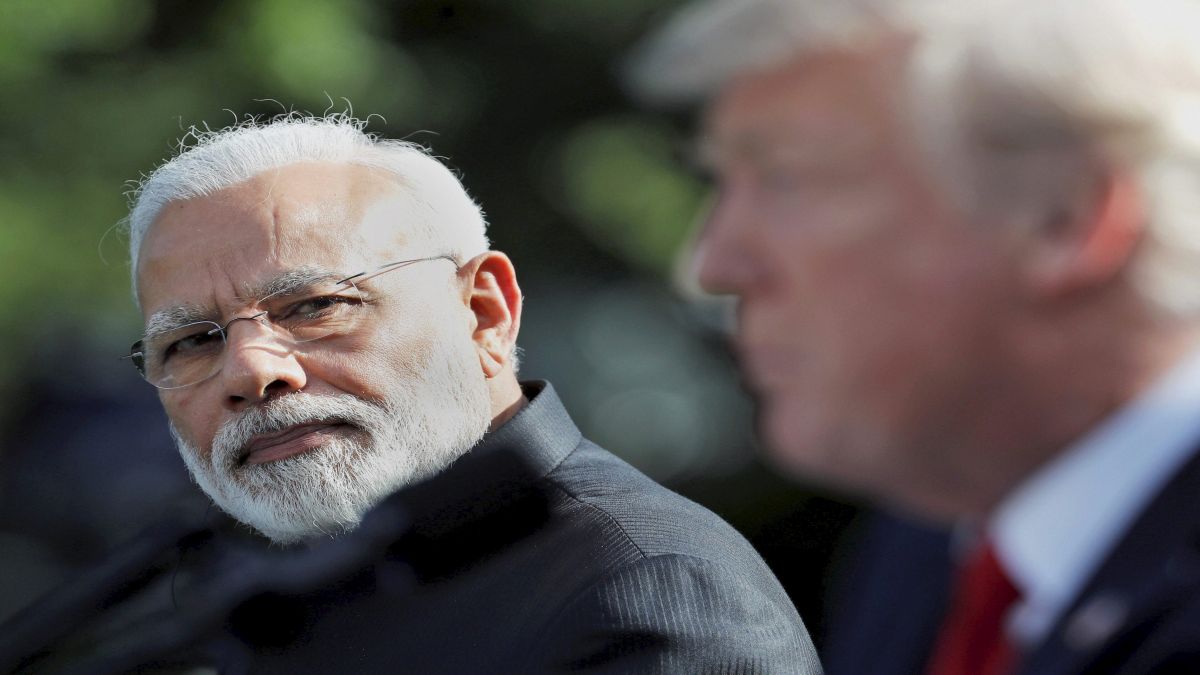It took 25 years over four US presidents and three Indian prime ministers to rebuild US-India relations; it took President Donald Trump just over 200 days to ruin the relationship. Trump’s 25 per cent trade tariff was already high and, according to a US court, illegal, even before Trump added an additional 25 per cent tariff due to India’s oil purchases from Russia.
While both tariffs are unfair, Trump and his administration added insult to injury with gratuitous slights to Prime Minister Narendra Modi and India. Claiming credit for the ceasefire between India and Pakistan was as obnoxious as it was inaccurate. In effect, Trump cast truth aside and prioritised his own ego and quest for the Nobel Peace Prize over any respect for Indian democracy and the interests of more than 140 crore Indians and 34 crore Americans.
Trump’s willingness to embrace Pakistani Army Chief Asim Munir with high honours after the Pahalgam massacre was as insulting to Indians as a hypothetical meeting between Indian leaders and al-Qaeda chief Osama bin Laden would have been after the September 11, 2001, terror attacks. Ironically, it was the institution that Munir represents that, in reality, sheltered and protected bin Laden.
The damage Trump has done not only to bilateral relations but also to US financial interests is incalculable. US Ambassador-nominee Sergio Gor, not yet 40 years old and without any diplomatic experience, is a Trump loyalist who headed the office to vet and place Trump political appointees into their positions. If he comes to India seeking to defend the indefensible, he will take a relationship already on life support and pull the plug.
India’s base tariffs are, of course, higher than those of Pakistan, Sri Lanka, and Cambodia, each effectively a satrapy of China. They are lower than Myanmar, Laos, and Syria, but only before the United States applies an extra 25 per cent because of Russia. Even before the Russia component, Trump based his core tariff calculation on poor maths. As American Enterprise Institute economists Kevin Corinth and Stan Veuger explained, Trump’s team used the wrong elasticity values, sometimes leading to up to a fourfold tariff rate inflation. They calculated that India’s tariff should be closer to ten per cent.
Impact Shorts
More ShortsThe extra Russia sanctions kill trade. They are unfair for three reasons. First, the United States provides India no other recourse for its energy needs. There is a parallel, here, to Rwanda which the Biden administration sought to punish for purchasing Russian bullets it needed as it faced an existential challenge from Hutu génocidaires based in and sponsored by the Democratic Republic of Congo and Burundi. During diplomatic meetings, Rwandan officials expressed willingness to purchase American ammunition instead. Biden’s team declined, however, to provide any alternative. Rwanda suffered genocide once; they were not willing to risk it again, especially as the United States was unwilling to help it meet its essential needs.
Washington may demand New Delhi stop purchases from Russia, but neither provides an alternative nor explains why India should limit itself to a single supplier, especially when Trump has previously threatened to use sanctions to bring India to its knees.
Second, the United States itself trades with Russia, importing fertiliser and platinum and exporting various chemicals. US officials justify their platinum purchases due to the reliance of US automotive and electronic firms upon the metal, as well as the paucity of alternative suppliers. So too does the European Union, whose 2024 imports of Russian liquified natural gas increased even without considering the Azerbaijani and Turkish laundering of Russian gas.
Finally. Trump is hypocritical to punish India in solidarity with Ukraine when he himself is betraying the besieged country at a time of its greatest vulnerability. Democracies should support each other, but if Washington feels so strongly, Trump should not be so hypocritical.
Eventually, Trump will move on, much like Canadian Premier Justin Trudeau stepping down, providing an opportunity to rebuild relations and restore trust and confidence. It will not be easy, nor should it. India deserves better, and Trump’s treatment of it was gratuitous.
Indians may never again trust the United States, but the relationship is important and can be symbiotic, even if transactional rather than ideological. Here, New Delhi should begin to determine the price of renewed partnership. If the United States wants India as an alternative for its supply chain given growing US-China competition, then New Delhi should make America put its money where its mouth is: India might demand preferential trade and an erasure of all sanctions; it might demand waivers and licences above and beyond what an objective formula might hold if only to compensate its business for unfair losses due to Trump’s policies and whims.
When Trump goes, Washington, with its historical amnesia, will want to return to the status quo ante cost free, but should India accede, it will simply set itself up for future presidents to act upon their whims or pursue policies based more on corrupted personal gains than on the US national interest. After such treatment of India, the Americans will need to pay a price. It is time for New Delhi to start discussing what that price should be.
Michael Rubin is a senior fellow at the American Enterprise Institute in Washington, DC, and director of policy analysis at the Middle East Forum. Views expressed in the above piece are personal and solely those of the author. They do not necessarily reflect Firstpost’s views.


)

)
)
)
)
)
)
)
)



